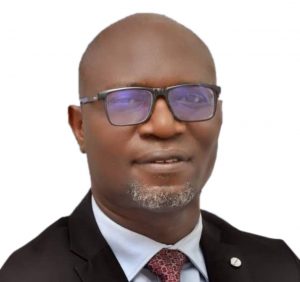Onome Amuge

The Securities and Exchange Commission (SEC), recently confirmed that the federal government, has since 2017, issued six Sovereign Sukuk worth a total of N1.1 trillion ($657.6 million), earmarked to finance 124 federal road projects spanning over 5,820 kilometres across all six geopolitical zones in the country.
Emomotimi Agama, the SEC director general made the disclosure at the 2nd International Islamic Capital Market Conference in Karachi, Pakistan.
Sukuk, or Islamic bonds, are Sharia-compliant financial instruments that offer investors partial ownership of an issuer’s assets. These bonds are structured in a way that complies with Islamic principles, which prohibit interest-bearing financial transactions.
Agama emphasised the rising popularity of Sukuk in Nigeria, stating that the success rate of Sukuk issuances demonstrates the resilience and innovation of the Islamic Capital Market as a tool for mobilising resources to support Nigeria’s economic growth.
Agama underlined the remarkable oversubscription rates achieved by Sukuk issuances, reaching a high of 441 per cent.
The SEC DG highlighted the essential role Sukuk has played in the growth of the Islamic Capital Market (ICM) in Nigeria since 2017, stating that the sovereign issuances have been a fundamental pillar for the development of the market.
Speaking on the expanding landscape of Sukuk in Nigeria, Agama revealed that sub-national and corporate Sukuk issuances are gaining traction.
He noted that states like Osun and Lagos, as well as companies including Family Homes Ltd., and TAJ Bank Plc have all issued Sukuk, with varying objectives such as funding school infrastructure, housing, and even tier 1 capital for a bank. These developments, he explained, demonstrate the versatility of Sukuk as a powerful financial instrument in Nigeria’s growing ICM.
Looking towards the future, the SEC DG underscored the boundless potential of Islamic Finance in the Nigerian economy. He emphasised how this innovative financial system can address pressing challenges such as infrastructure shortage, financial exclusion, low mortgage penetration, and ethical concerns, which have deterred participation in commercial financing.
Agama further highlighted the increasing level of activity in the Nigerian market, which, coupled with established benchmarks for corporates and subnational entities, offers substantial advantages to ethical investors and foreign capital seeking sustainable and promising investment opportunities.
Agama further expounded on the diverse offerings of the Islamic Capital Market in Nigeria beyond Sukuk.
He revealed that the sector has witnessed remarkable growth in the realm of Halal mutual funds, with 14 registered funds valued at over N105 billion as of November 2024, compared to a single registered fund in 2008. This demonstrates the expanding appetite for Sharia-compliant investment options.
Furthermore, Agama highlighted the launch of the NGX Lotus Islamic Index, which tracks 11 Shariah-compliant equities, as well as Nigeria’s first Islamic Real Estate Investment Trust (REIT) – ChapelHill N-REIT.
Agama also highlighted key drivers that are expected to drive the growth of Nigeria’s Islamic finance industry in the coming years.
He observed that the sector is expected to benefit from global as well as domestic factors, including continued refinement and expansion of the regulatory space by regulators and policymakers, paving the way for product innovators to introduce a wide range of Sharia-compliant financial instruments, catering to the diverse needs of investors.
He added, “This is the time to stake positions that will no doubt produce competitive returns and satisfy ethical and sustainability concerns. The table is set for investing. Foreign participants should take positions and increase stakes in tandem with domestic trends. This offers a significant opportunity to contribute to sustainable economic growth and financial inclusion in Nigeria and by extension the African continent.”








